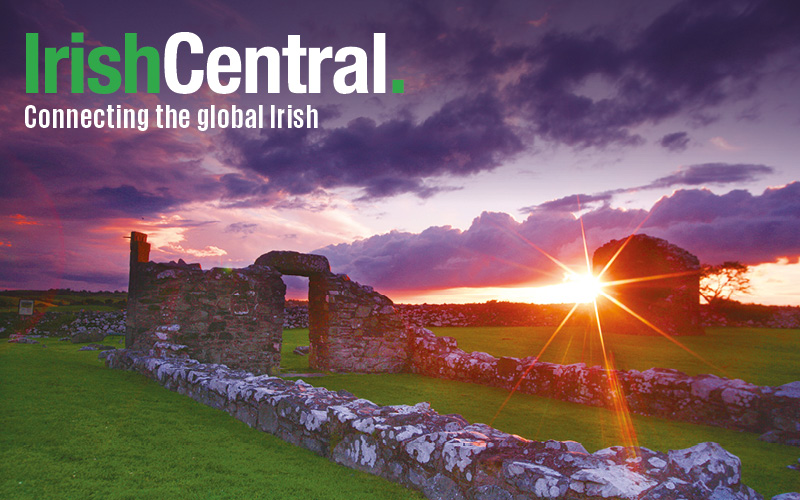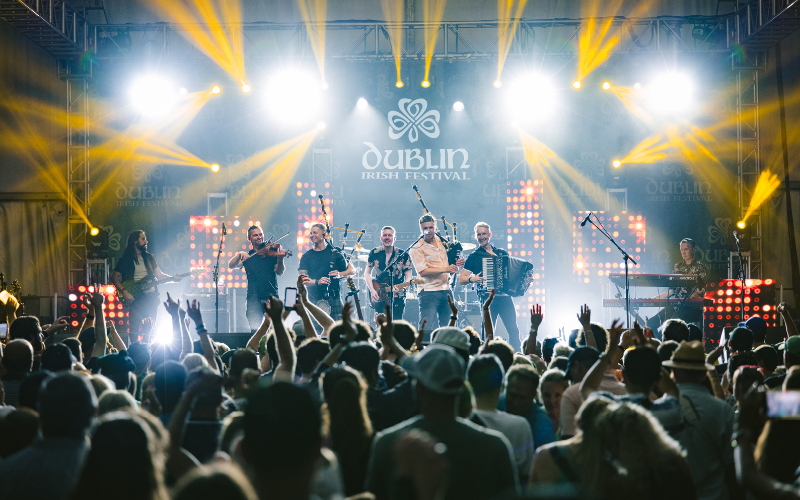| The cheapness of alcohol in Ireland has become a huge problem |
Looking out my study window right now on Tuesday morning I see things are back to normal. It's raining!
But for the past week and right through the weekend things have been far from normal. Not a drop of rain. Hot unbroken sunshine from clear skies all day long. It was like the Mediterranean.
We needed it badly because here in Ireland we have come through the coldest, wettest spring for decades. So when the sun finally appeared a week ago and then turned into a six-day heat wave we basked in it.
They can warn all they like about the dangers of skin cancer and the need to slap on the factor 30, but when Irish people get the chance to escape the drizzle and soak up the rays, they just go for it. They can't resist. So there are painfully pink bodies everywhere today.
For most people here a few days of hot weather means stripping off outside work or college during lunch break, trying to get home early and praying that it will last to the weekend.
Unbelievably, this time it did, right across the country. It was glorious.
But once again it revealed a far from glorious side to Irish society -- the ongoing problem we have here with drink.
For the Irish, particularly Irish teens and young adults, sun and booze seem to go together. It's not just a few beers with a barbecue. It's a compulsion to get completely out of it.
This leads to tragic outcomes like drownings (there were a few here over the past week) as drunk teenagers decide to go swimming. It also leads to fights and even riots as the alcohol kicks in and tempers flare up in the rising temperatures.
The Internet hums with messages about raves and beach parties. Nothing wrong with that, except that the results are often out of control drunken mobs throwing bottles, doing drugs and having running battles.
There were two of these not far from where I live on the north side of Dublin, one when the good weather kicked off and the other during this weekend.
The first was a running battle on the popular family beach in Portmarnock, with vicious fighting and bottles being thrown, terrifying children who were in the vicinity.
Anecdotal evidence indicated that it started as a battle between two mobs, one immigrant and the other local (north Co. Dublin has a high concentration of immigrant families who came here during the boom, mainly from Eastern Europe).
With hundreds involved, the few Gardai (police) who arrived at the scene could only stand and watch and video what was happening. (You can see this yourself on YouTube if you search for Portmarnock beach riot). The video is filmed from a safe distance and gives little idea of how terrifying the event was, particularly for families who were caught on the beach when the trouble broke out.
One tactic that the drunk and drugged up teens are using now to defy the police is to congregate in such large numbers that it's impossible to control them (at least for an unarmed police force).
At the weekend, organized on the Internet, they descended on Howth, the fishing and sailing village at the end of the Dart electric train line on the north side of Dublin, which is in all the guide books and is visited by hundreds of tourists to the city every weekend in the summer.
The tourists come to stroll down the piers, admire the fish in the fish shops or lunch in the restaurants around the harbor. There are big sailing yachts to see and boat trips out to the famous Ireland's Eye, the small island just offshore. There are beaches for a swim, cliff walks, golf courses and the ancient Howth Castle to explore.
Howth is a spectacularly beautiful place (one reason why I live there), and it's a perfect break for tourists in Dublin who want to get out of the city for a while. It's less than half an hour away from the city center by Dart. So, as I said, it's hugely popular with tourists.
But what greeted the tourists who came out to Howth last weekend to stroll down the pier must have been left them reeling in shock, particularly if they were trapped at the far end of the pier when the rave started.
Again, you can see it on YouTube if you search for Irish Teens Start Rave in Howth. The teens have taken over the pier, and two police patrol cars who arrived can do nothing about it.
The short video does not communicate how threatening it was later on, and it's hard to see the bottles and the drugs. But people who passed the pier at the time say that a large number of teens were completely out of their skulls. There were fights breaking out and there were reported stabbings.
The common link in these two incidents -- and in others like them around the country over the past week -- is the amount of booze involved (these youngsters can down a bottle of spirits no problem) and the way this behavior always emerges whenever we get a few days of good weather. It's like mass teen hysteria brought on by the sun.
The next day, of course, a massive clean-up is needed. Because the Irish kids are not just drunks, they are drunken pigs who leave litter, bottles and all kinds of crap all over the place. They treat wherever they are like it was a garbage dump.
No one seems to know what to do about the booze problem here, which is getting worse, not better, particularly among the young Irish. If anyone foreign (like the Brits or the Yanks) calls us drunks we go crazy and say it's racial stereotyping and we demand apologies.
Well, that doesn't apply to me because I'm Irish and I can tell the truth as I see it. And what I saw over the weekend makes it clear to me that we Irish have a serious drink problem.
The present government has been trying to do something, but knowing exactly what to do is far from easy. Minimum pricing? Age limits? Health warnings? Education campaigns?
Finding a solution that will be effective but still allow responsible people to drink in moderation seems almost impossible.
The last junior minister for health here (before she fell out with the minister) was Labor politician Roisin Shortall, who took a strong line and bluntly said that as a nation "we need to reduce the amount of alcohol that we drink.”
The cheap and easy availability of alcohol happened in recent years and is a big factor, she said, referring to the way Irish supermarkets sell booze at rock bottom prices to get customers into stores. Some kinds of booze (beer, cider) are now often cheaper than bottled water.
But her efforts to do something were stymied by the powerful alcohol lobby which so far has managed to stop efforts to introduce a minimum price for alcohol.
She said that alcohol puts huge pressure on the health system and costs us nearly €4 billion a year in hospital costs, alcohol-related crime, missed days at work, inefficiency and so on.
Then there are all the things that are impossible to cost, like the damage done to the kids of alcohol addicted parents who are too out of it to look after them.
Official figures released by Shortall last year showed that per head of population we’re drinking almost 12 liters of alcohol a year, equivalent to a bottle of spirits a week per person over 15. (In comparison, the figure for the U.S. is about 8 liters per head.)
Shortall's role is now being handled by someone else, but we still have to see real action. It's not going to be easy because of the power of the alcohol lobby and how ingrained alcohol is in Irish society.
In particular youth drinking is a huge problem, with the young Irish having one of the highest levels of drunkenness in Europe. One theory on how to tackle this involves limiting alcohol advertising and visibility.
Shortall had proposed that all drinks sponsorship of sports events should be phased out over the next 10 years. But this will leave a huge funding gap in sports budgets and no one knows how to fill it.
Meanwhile, the alcohol industry is campaigning against such a restriction.
It's all about getting the young Irish to buy into responsible drinking instead of feeling that the only point in drinking is getting out of your head as fast as possible. Maybe then they will stop disgracing us as a nation, not only at home but in places where the young Irish have emigrated to like the U.K., the U.S. and Australia.




Comments